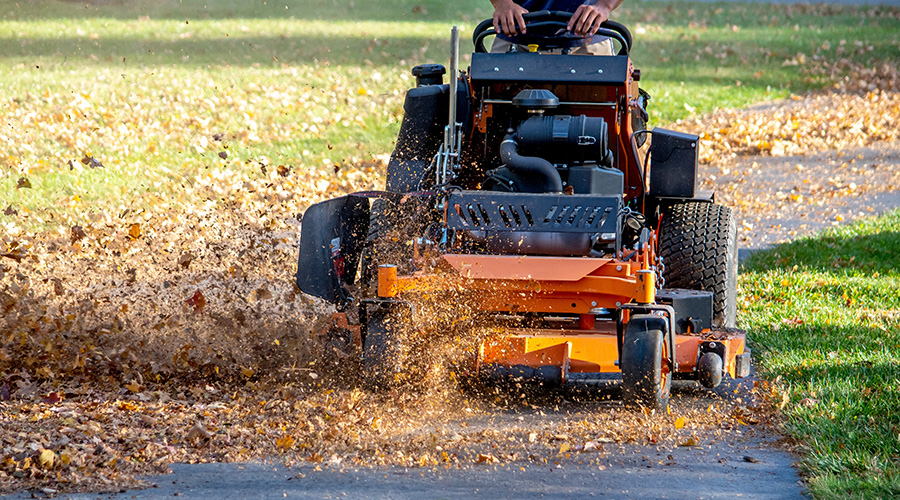
How to Store Summer Grounds Equipment
Winter is coming, but it doesn’t have to harm the way equipment is stored. September 20, 2024
By Mackenna Moralez, Associate Editor
The days are getting shorter, and the temperatures are starting to drop. With autumn quickly approaching, more people are starting to switch out their summer shorts for some sweaters. Even as the temperatures begin to cool, that doesn’t mean that yard work has to stop, though.
If grass is growing, grounds managers will need to mow it. Every autumn grounds managers should create a “to-do list” before putting equipment in storage for the winter. This can include aerating lawns, overseeding, cleaning out plant beds, trimming back perennials and adding a fresh layer of mulch around trees and shrubs to offer protection during the harsh winter months.
Readying equipment is essential as the weather shifts, and one way to do this is putting equipment away correctly in a clean and dry space. Outdoor Power Equipment Institute (OPEI) suggests that ground managers review owner’s manual and service equipment before storing spring and summer equipment for the winter. This includes changing engine oil and service the air filter.
During servicing, it is important to handle fuel properly. According to OPEI, unused fuel left in gas tanks can go stale over the winter and cause equipment damage. The organization suggests that fuel stabilizer be added to the gas tank, then restart and run until the gas tank is empty. For battery powered equipment, managers should remove and fully charge the power source before storing in a climate-controlled structure.
Meanwhile, a heavy-duty outdoor-rated extension cord should be on hand so it can operator the generator a safe distance from the building. It is important to remember that generators should not be operated indoors, in a garage, breezeway or under an open window, OPEI reports.
Mackenna Moralez is the associate editor of the facilities market.
Next
Read next on FacilitiesNet












